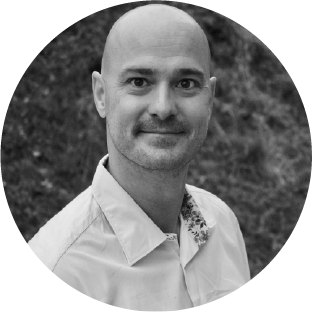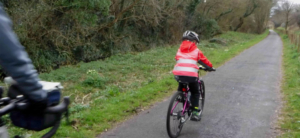The power of an invitation: learning about how change happens from those on the front lines…

Latest posts

Could Girls on Bikes replace GDP?

Transforming Youth Employment with Systems Change in Africa

System Change in Action: The Wigan Deal
Share:
Have you ever had one of those ‘lightbulb moments’, where you get an idea so inspirational that it creates perfect clarity for just an instant, and then afterwards you slap yourself in bewilderment at why it took you so long to realise it? Happily, (and embarrassingly), we had one of those epiphanies, if you will, in September.
Since our founding, Wasafiri has been grappling with the question of ‘how does change happen?” when tackling complex problems. Our practical guide to action (Systemcraft) was a product of this life-long journey of exploration.
Our most recent ‘aha’ moment was to ask, ‘why don’t we bring together some of our most diverse, dedicated and dynamic clients to learn from each other?’ Seems obvious, right? Well, that’s exactly what we did – and the joy, connection, and energy from our gathering have given birth to a new precedent for how we learn moving forward.
The virtual learning session brought together Wasafiri staff from four continents, and wonderful clients from four of our most recent projects.
We dove into the lessons from messy, real-world work together. We shared stories from the failings, successes and imperfections of our shared endeavours and together, identified some common themes and insights.
Participating Projects
Africa Food Fellowship (across Africa) is a world-class leadership programme for food systems leaders, catalysing a professional movement for systemic change across Africa. Wasafiri co-designed the Fellowship in partnership with Wageningen University for Research & Innovation.
Project reps: Eunice Khaguli, Dave Okech and Winnie Yegon
CREATE (East Africa) Wasafiri works with Mercy Corps to lead the Knowledge and Learning Unit of this three-year, five-country regional program to counter violent extremism across East Africa.
Project reps: Catherine Mwendwa and Maia Blume
Feltham Convening Partnership (Greater London, UK) is a 7-year project that aims to use systems-based approaches to deliver substantial, sustainable improvements to the lives of local children, young people, and families in the Feltham community.
Project reps: Scott Hinkle, Mei Lim, Victoria Hirst and Teo Balint
United Nations Food Systems Summit (Global) To ensure the voices of SMEs were heard at the Global Food Systems Summit, Wasafiri was commissioned to help activate the global community of agri-food SMEs, profile those SMEs improving nutrition and sustainable consumption, and identify pathways for greater support.
Project reps: Ian Randall and Viliana Dzhartova
Key themes that emerged from using Systemcraft
It is difficult to harness, facilitate and measure the Emergence of a systemic effort.
Collective efforts and participation tend to unleash a domino effect of more participation and collective initiatives. This is often where the power and scale of system change occur.
For those leading systems change efforts, the challenge seems to be in how to facilitate the emergence toward a meaningful, constructive and measurable way.
There was also a question of how and when to merge collective efforts (new power) with more traditional and hierarchal leadership systems (old power), and what space is needed to be able to do that.
Genius insight from the session: “How do we host emergence?”
A mindset shift in the way people think about the issue is critical but requires a process of Unlearning.
One of the key aspects of effective systemic approaches is facilitating a process that effectively helps people shift away from what they are used to, and from their default reactions to problems and issues. Our practice should be to help clients and partners ‘unlearn’ practices that potentially perpetuate the problem. We need to hold this process of learning and embody the spirit of collective action.
Quotes from the session: “There is a big leap to bring other people along, whose institutions and mindsets are not set up in that way.”
Tensions exist between the time it takes to learn and implement collective approaches vs the desire to ‘see things getting done’.
Simply put, it takes more time to apply systems approaches; dealing with contextual and relationship sensitivities, power imbalances, and a much broader group of stakeholders.
The above systems learning/unlearning process combined with the time and resources necessary for collective action can be frustrating, but it is important that our teams, partners, and clients learn it, and then apply it themselves in their own organisations.
It can help to openly discuss the balance between collective engagement and required project deadlines and outcomes.
Good news, there is no right or wrong way to use Systemcraft.
It is important, but challenging, to know what parts of systems-based approaches to share, and how. Balancing the explicit and implicit use of them with the clients and partners can be challenging.
Some projects were using it and teaching it to partners explicitly, while others don’t mention it at all, but use pieces of it to guide their work.
This demonstrates that the Systemcraft framework is flexible and can be used in tailored ways to benefit diverse projects.
Quote from the session: “We are not saying to people that we are doing Systemcraft, but we are doing it in our work.”
As I sit here writing this and reflecting on the experience, I am stuck with one lasting impression, a quote I wrote down in my notes, ‘There is simplicity and power in an invitation to participate.’
I am certainly glad that some of my colleagues (George and Bhabz in particular) unearthed that revelation, as well as the moxie to follow it through. It raised the bar for all of us.







